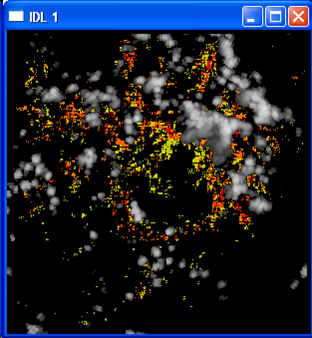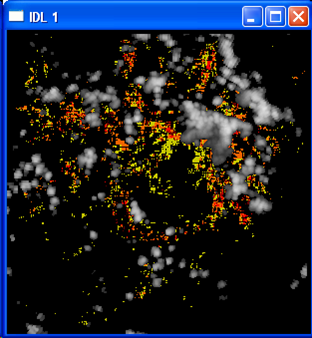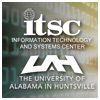Validation of Convective Initiation Using GOES
This project is a validation study of the ability of GOES data and the Mecikalski and Bedka algorithm to predict the formation of convective weather patterns. Once validated, this technique could prove very instrumental in improving severe weather predictions, especially in remote areas.
The Geostationary Operational Environmental Satellites (GOES) are in geosynchronous orbits that allow them to monitor a fixed spot on the Earth's surface. Data is transmitted and archived at fifteen minute intervals. This allows scientists to monitor and track weather conditions at up to 1 km resolution. Research has been conducted to predict regional severe weather outbreaks using GOES data, namely thunderstorm development, since the GOES satellites view large areas simultaneously. The 0-1 hour newscasts of thunderstorms and severe weather (as provided by the Mecikalski and Bedka algorithm) is highly valued for aviation support, flash flood predictions and weather forecasts. In particular, outside the U.S., few areas have radar stations available, which is a main motivation for monitoring and tracking severe weather using satellites; being able to predict severe weather quantities such as thunderstorm development, lightning and rainfall intensity via the GOES satellites would be a great benefit.
This project validates the predictive power of the convective initiation scores derived by Mecikalski and Bedka by comparing the scores to radar scans thirty minutes into the future. Scores can range from one to eight, but only scores higher than five shall be considered as indicative that GOES has nowcasted convective initiation. The scores are determined using a combination of GOES and radar derived wind fields, and the convective initiation scores are matched to the future radar image by centroid and area matching. The matching data is recorded; then statistics and transformations are subsequently calculated to reject or accept the hypothesis that the convective initiation scores predict the radar scan thirty minutes into the future.






